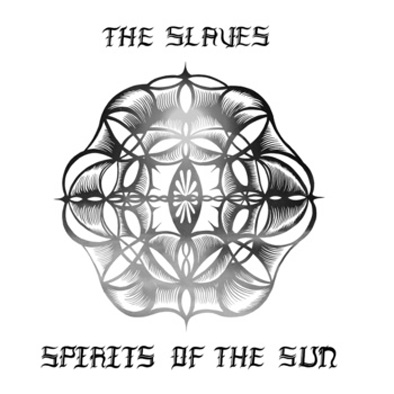 I could never quite understood why this Portland duo were not more popular, as their dreamy Twin Peaks/early 4AD/shoegazer aesthetic always seemed pretty likable to me (if a bit over-sedate).  Curiously, however, they have dramatically changed their sound for this album, their most high-profile release to date.  I cannot quite say that their shift into quasi-choral ambient doom is entirely an improvement, given that the new lack of actual "songs" is necessarily less engaging, but the better moments are pretty damn close to being audio heroin.
I could never quite understood why this Portland duo were not more popular, as their dreamy Twin Peaks/early 4AD/shoegazer aesthetic always seemed pretty likable to me (if a bit over-sedate).  Curiously, however, they have dramatically changed their sound for this album, their most high-profile release to date.  I cannot quite say that their shift into quasi-choral ambient doom is entirely an improvement, given that the new lack of actual "songs" is necessarily less engaging, but the better moments are pretty damn close to being audio heroin.
This brief four-song album begins in wonderfully sublime fashion with "111," which is built almost entirely upon Barbara Kinzle's wordless, almost sacred-sounding vocals.  It is roughly akin to a monophonic hymn in the vein of Hildegard von Bingen, but Kinzle's vocal tracks harmonize uncomfortably with one another, creating an instant ominous undercurrent.  Gradually, that unease intensifies as Birch Cooper's sizzling guitar squall sneaks in to form a roiling bed that ultimately consumes the whole song in a grinding, hissing crescendo.
"River" segues out of the chaos to reset the template: Kinzle and Cooper now sing a duophonic quasi-hymn.  It does not quite reach the heights of its predecessor though, settling into a languorous rhythm of guitar noise washes and brooding synthesizers rather than catching fire.  While I always enjoy my ambient with a healthy dose of grit and sizzle, The Slaves err a bit too much on the side of noise here, losing a bit of momentum by burying the piece's more human, distinctive elements.
"The Field" cedes center stage to Kinzle's glacial minor key synthesizer swells, which I suppose kicks off the "doom" portion of the proceedings in earnest.  Unfortunately, I suspect The Slaves think the song's brooding chord progression is a lot more compelling than it actually is, as it basically unfolds for five minutes with almost no variation.  It is a bit too gloomy for my taste, but its slow pulse is weirdly hypnotic if I am in the right mood.  Also, Cooper's billowing noise blooms give it a satisfying texture and unpredictability.
The album closes with its lengthiest piece, the nearly 13-minute "Born Into Light,"which makes a welcome return to the  album's earlier choral aesthetic.  Despite its funereal pace and atmosphere, it is one of the album's strongest pieces due to its slow-burning accumulation of density.  Also, Birch's washes of distortion are a bit more erratic and meaningful than usual–sometimes they transcend mere texture and actually threaten to tear through the heavenly, melancholy fog.  I think The Slaves definitely work best when they allow their songs a long time to stretch out and unfold.  Doom cannot be rushed.
Given that it marks a significant change in sound, Spirits of the Sun is surprisingly successful.  It admittedly hits a bit of a lull in the middle, but that lull is bookended by two excellent pieces.  I especially loved the haunting "111," as it managed to nail an unusual balance between faux-sacred, vulnerably human, and barely restrained chaos. Otherwise, I think The Slaves could probably benefit by allowing some of their previous song-like tendencies to return, as it would give their music a bit more character: I definitely prefer Grey Angel and Ocean on Ocean as far as complete releases are concerned.  As far as songs are concerned, however, "111" might be the best and most promising thing that Cooper and Kinzle have ever done.
 
Read More

